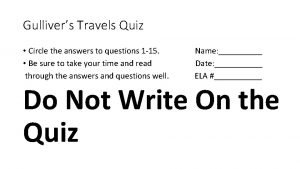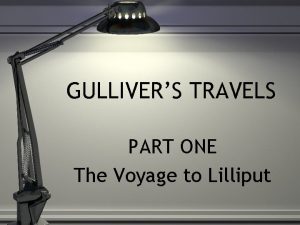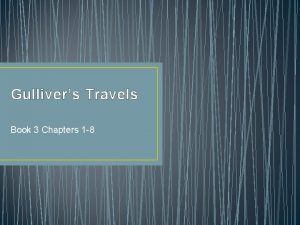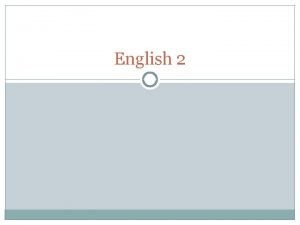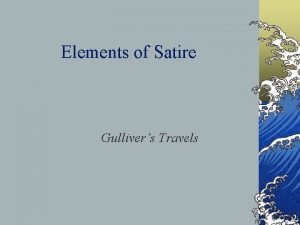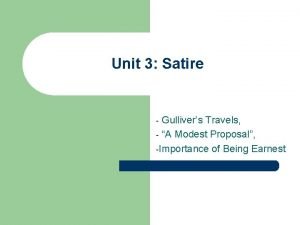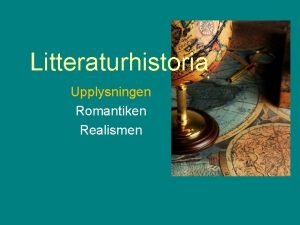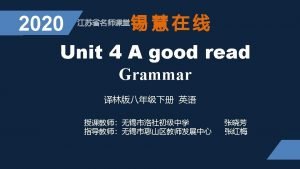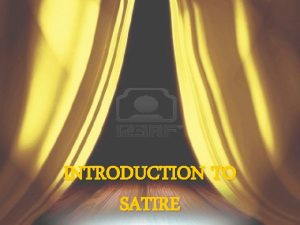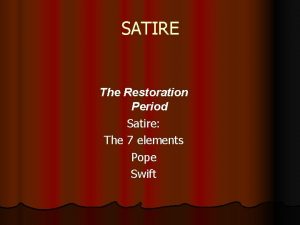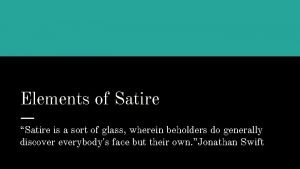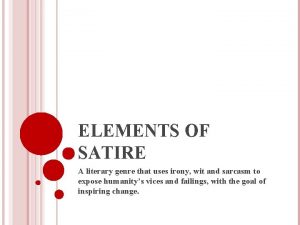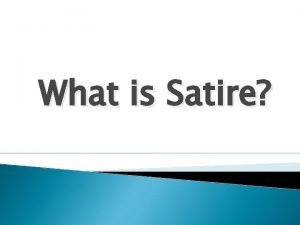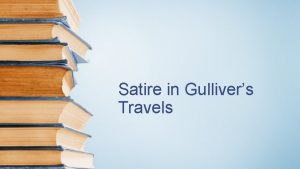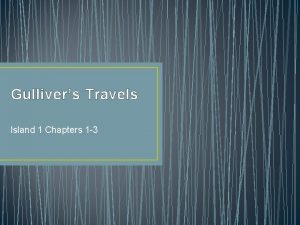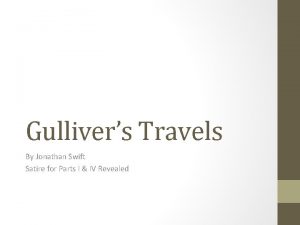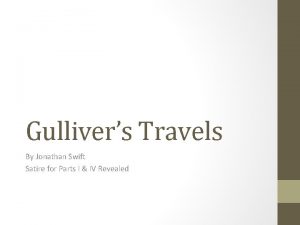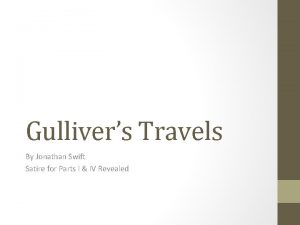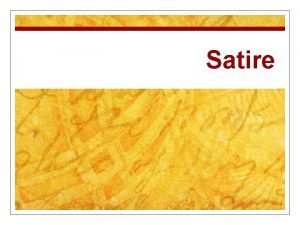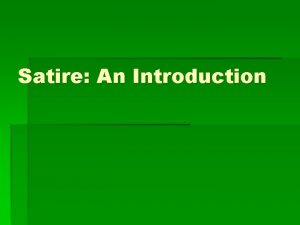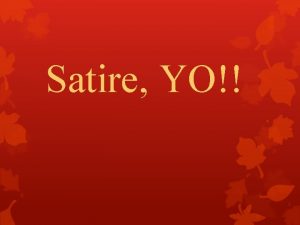Elements of Satire Gullivers Travels Definition Satire a













- Slides: 13

Elements of Satire Gulliver’s Travels

Definition © Satire: a literary work that makes fun of a subject by ridiculing and demeaning it.

Elements of Satire © Must attack an institution (government, politics, religion, education ect) © Must be humorous © Must use responsibility (in other words it cannot outwardly mock anything that could damage the writer’s reputation or ruin the fabric of society)

Elements of Satire © There must be a clear target (it cannot be obvious though) © Formal Language (if it does not have this it becomes slap stick comedy) © Becomes like a private joke– it involves sophistication and everyone may not get it.

Elements of Satire © Usually uses irony and wit © Usually uses a common medium: could be a poem, debate, news report, short story etc. © A good satire should make the reader/watcher think

Purpose of Satire © Satire’s purpose is to bring about change! © This makes it different from a Parody which simply makes fun of an individual or institution for comic effect © Satire usually asks us to see what is around us and consider it.

Satire in Gulliver’s Travels © Big Endians and Small Endians ©This refers to the argument with the country across the sea as to which side of the egg to break ©This is a reference to the warring between France and England over land religion. Remember both are Christian countries, but one is Catholic and the other Protestant. ©The reference to the Emperor cutting his finger as he broke the egg, is an allusion to King Henry VIII (remember the King with all the wives, father of Queen Elizabeth) who created the Church of England “broke” the Catholic hold on England.

Emperor of Lilliput © The Emperor is actually a satire of King George I. © He is the ruler that succeeds the throne after Queen Anne and is ruling when swift writes the novel. © King George was actually German and gains the throne through marriage.

More on the Emperor © He was a militant leader © He hated living in England refused to learn English. He would often yell at his advisors in German and then get even more angry when they couldn’t understand him. © He was hated by the English people. He and his family were gross, humorless, mean, and illtempered. This made them the objects of much ridicule including Swift’s. © Even his son hated him. © He was incredibly fat and stupid as well.

Emperor Continued © Despite King George’s unattractiveness, he had several mistresses (equally unattractive). © His wife tried to elope with another man, her lover was mysteriously found dead. His wife was imprisoned for 32 years until her death. © In the meantime, George had to infamous mistresses. One was 60 years old and so skinny the people called her “Maypole” Another was so fat they called her “Elephant”

Satire in Gulliver’s Travels © The High Heels and the Low Heels © This refers to the political parties in England at the time Swift is writing. The High Heels are the Tories (remember this party believes in the power of the King and the church)and the Low Heels are the Whigs (the party that believes in having a parliament that checks the power of the king). © The Emperor at one point favors the Low Heels and wears them himself. © Eventually the Emperor wears one low and one high heal. This is a direct correlation to King George’s attempt to appears as not to favor one party over another.

Elections in Gulliver © In Gulliver’s Travel’s, Gulliver witnesses a strange ribbon dance that is used to choose the next elected officials in Lilliput. © Swift is commenting on the absurdity of English elections. While the people could choose who would represent them in Parliament, the King could buy votes of both the people and parliament by promising Cabinet positions, land titles. In other words, the elections did not represent the will of the people but rather their greed and are as absurd as choosing a government based on their ability to dance.

Gulliver’s Travels ©These are just a few examples from the first book. Look for more in the other books.
 Quiz gulliver travels
Quiz gulliver travels Slamecksans are a parody of
Slamecksans are a parody of Gulliver's travels book 3 chapter 1
Gulliver's travels book 3 chapter 1 Gullivers travel quiz
Gullivers travel quiz Gulliver's travels satire chart
Gulliver's travels satire chart Gulliver's travels chapter 3
Gulliver's travels chapter 3 Satire in gulliver's travels part 3
Satire in gulliver's travels part 3 Gullivers resor upplysningen
Gullivers resor upplysningen Gullivers travel agency
Gullivers travel agency Slidetodoc.com
Slidetodoc.com Restoration satire
Restoration satire Elements of satire
Elements of satire Elements of satire
Elements of satire Reversal satire definition
Reversal satire definition
